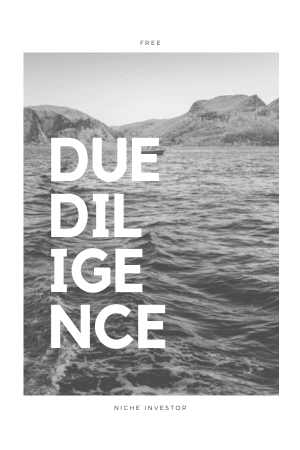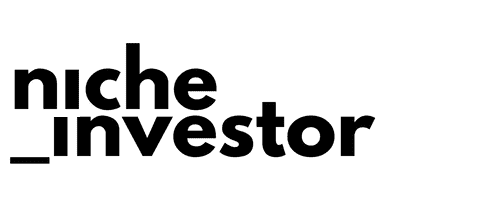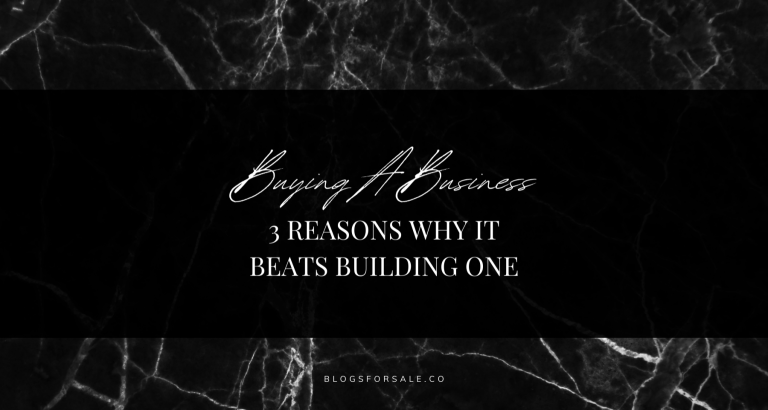Starting a Blog by Purchasing a Starter Website

Purchasing a starter website 101: Do you want to get into the world of digital marketing and blogging but don’t know where to start?
One of the biggest barriers to entry is the process of web design. This also includes the technical aspects of getting a blog set up on the back-end and then formatting it to be presentable on the front-end.
You can skip this hurdle by simply purchasing a starter blog. Starter blogs are ideal for people who want to get down to business and start blogging.
Here’s how you can get started blogging right away, by purchasing a starter website!
As an affiliate partner of various brands and sponsored content, we may earn commission on qualifying purchases. Disclaimer | Advertise With Us
Get On Fast Lane To Starting a Blog: By Purchasing A Starter Website
Written by Josie Pena
Let’s dive into why purchasing a starter website can be a great time-saving investment. As well as what you should do after the purchase, to ensure your ROI.
Low Barrier to Entry
Starter websites are ideal because most of the work on blog design and on the technical side has been taken care of.
This kind of work would normally cost upwards of 2-3K in web development and design costs.
Starter websites are created by individuals who enjoy designing websites as a hobby and then sell these starter websites a finished product.
Besides doing your due diligence to check that the starter blog is in alignment with your business goals, there is no knowledge involved in purchasing a starter blog.
You can simply start by adding your contact information and content to the blog.
The website would already be formatted with a theme and an overarching niche topic on a custom domain name and all you would have to do is hit publish.
A starter blog is a functional and ready website that has been created as a launchpad for savvy entrepreneurs.
Learning Blogging Basics
However, with a starter blog, there is typically minimal support or assistance resources after the purchase.
The self-hosted blog website will be transferred over to your possession, which will include access to the hosting provider and domain registry.
You should at least know about the basics of running a blog, just in case anything happens (here is a free resource to help get you started).
Eventually, you will need to renew services such as your domain name and hosting.
Check out this list for hosting plans and hosting packages and other resources.
Becoming familiar with the process of domain name renewals, managing domain name records (A name, CNAME, TXT, MX), adding other Domain Name Server (DNS) information, and managing the blogging software (WordPress) will be vital to the long-term success of your blog business.
The technical side of managing a successful blog business which includes: web design, search engine optimization, updating plugins, backing-up website data, and monetizing your website are areas that you will learn during your blogging journey.
To streamline these processes and shorten the learning curve, taking an in-depth approach using the HerPaperRoute suite of classes can help you learn all of the above. As well as how to plan for passive income, join affiliate programs, manage an email list, create a digital product and possibly turn your blogging endeavor into a full-time income.
Using Keyword Research Tools
After buying a starter website (skipping the setup process), and learning the basics with courses design to help you skip the learning curve, you can then move on to creating a basic plan for developing your topic ideas.
There are various (search engine optimization) SEO tools, where you can conduct keyword research to see how many monthly searches your niche of interest receives.
You will want to make sure you aren’t writing on multiple unrelated topics as this will dilute the focus of your blog niche, and thus discoverability. Many successful blogging sites use this niche-based strategy to form their content ideas and to keep their blog audience engaged with relevant high-quality content.
For example, if your website is in the fitness niche, you may want to take major topic ideas such as “abdominal exercises” or “leg exercises” and find other sub-topics that your target audience may be looking for under these ideas.
Using an SEO tool will help expand those ideas into narrower sub-topics that you can use to help your audience find specific answers for, such as “abdominal exercises for a 6-pack” or “leg exercises for defined legs”.
SEO software would not be included in your starter website purchase, but there are several options that are readily available to you for a nominal fee.
The cost is minimal, and most of these options allow you to validate your market potential and eventually monetize your content quicker, which is invaluable.
Sometimes, some starter websites may come with keyword research provided by the seller, which you can use to plan your content strategy.
Writing your Blog Content
If you have purchased a starter blog, chances are that you won’t have to the blog from scratch.
There will be pre-written content on the starter website, and you will be able to build upon this.
Writing your blog content is probably the biggest hurdle to becoming a successful blogger because it takes time, hard work, and dedication.
Writing compelling content will depend on your writing skills, story-telling skills, and just overall creative skills.
- How do you plan to keep your readers engaged?
- What answers will you be providing?
- How can you help others understand something obscure or complicated?
You can write content for search engines that are stuffed with keywords but perhaps they won’t keep your readers engaged because it will sound too repetitive or unnatural.
Or you could keep it natural, add your personality, teach someone something, and lend new insight to the topic at hand to create your copy of compelling content.
Whatever strategy you take to write your blog material, always make sure to keep your long-term goals in mind.
Before writing your first blog post, you will want to take your specific topic and make sure you are answering all the questions related to that topic. You can be as superficial or substantial as you want to be, but this will most definitely affect your readership.
For example, let say you have a travel blog, you can write on a topic like “The Ultimate Guide to Puerto Rico’s Beaches” and answer questions like “What are the most popular beaches” and “What are the most remote beaches”, and so on.
These questions are very specific and definitely answer some important questions potential travelers may have about Puerto Rico’s beaches.
Although, you can also be very broad with this topic and write something superficial like “10 Beaches to visit in Puerto Rico” and “Staying on the Beach vs a Hotel in the Towns.”
Regardless of your content writing approach, as long as you can provide value to your readers on a regular basis, you will eventually build authority in your niche topic and increase your potential of being discovered through organic search.
Marketing Your Blog Content
Eventually, after writing a significant amount of content for your website, you will also want to make a marketing plan to distribute your content around the web through various social media platforms.
This is a form of free advertising available to you that will help generate traffic back towards your blog posts and products.
Whether your products are affiliate-based, digital products or ad-revenue focused, your goal should always be to have traffic visiting your website to eventually earn some ad-based income or affiliate-based income.
Whether your website is more of a personal blog or a business blog, you can distribute your content everywhere for people to see.
You will want to make sure that your blog post ideas are attractive enough for people to want to actually click on your link to visit your website.
Many popular blogs have formed an omnipresence online through various social media platforms, they can be found on Facebook with a page and group, on Twitter, on Pinterest, and even on LinkedIn.
Follow Niche Investor on Facebook.
Don’t limit yourself just to the popular social media websites, you can also distribute your content on websites like Quora, and other forum-based sites.
You will want to make sure you are capturing all of your website visitors by implementing an email capture form.
Retargeting Your Email Subscribers
Once you have developed an email list, this list will serve as a precious resource for your website.
You will be able to send a weekly or monthly email newsletter to your subscribers to get them to visit your website to read your latest posts or news, you can get them to check out your latest affiliate recommendations, and so on.
Collecting an email address on your website should be a top priority for your website business, as this will help further develop your brand awareness and authority.
The signup process should be clear and simple, such as having a form on your website that collects a name and email. Email marketing is a complementary process to running your online website business.

Starting a Blog By Purchasing A Starter Website – Conclusion
By now, we hope you can see how starting a blog can be a simple process, by purchasing a starter website to help you get over the initial hump.
Ready to acquire your next niche site? Take a look at our current listings here.






